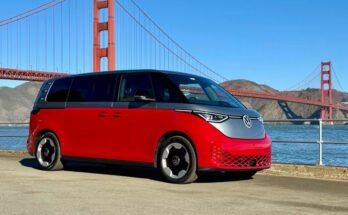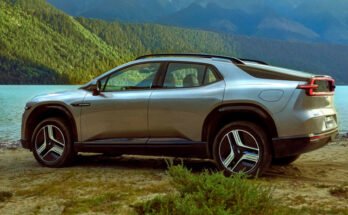Understanding the Basics: Compact Cars vs. SUVs
Understanding the differences between compact cars and SUVs is crucial when considering which vehicle to purchase. Compact cars are typically defined as vehicles that offer a smaller footprint while providing efficient fuel economy and user-friendly manoeuvrability. They usually have a length of approximately 13 to 15 feet and are designed for urban driving. Compact cars often boast space-efficient designs, allowing ample seating for up to five passengers while maximizing cargo space relative to their size. Their lightweight structure enhances fuel efficiency, making them an appropriate choice for individuals seeking economical transportation.
On the other hand, SUVs, or Sport Utility Vehicles, encompass a broader range of vehicle types that combine elements of road-going passenger cars with off-road vehicles. Generally larger than compact cars, SUVs are built to provide greater road clearance, increased cargo capacity, and advanced all-wheel-drive systems. Their size, ranging from around 14 to 20 feet, provides a commanding view of the road and offers superior passenger capacity, often accommodating between five to eight occupants comfortably. SUVs are well-regarded for their versatility, as they can easily handle various terrains and road conditions. These vehicles appeal to families, outdoor enthusiasts, and individuals needing more space for passengers and luggage.
Functionality also distinguishes these two types of vehicles. Compact cars excel in urban settings where parking space is limited, and fuel efficiency is prioritized. Conversely, SUVs are more suited for diverse driving conditions, offering the capability to navigate rough terrains while maintaining comfort. The target audiences for these vehicles are equally distinct; compact cars attract city dwellers and commuters looking for convenience, while SUVs cater to families and adventure seekers requiring flexibility and space. By recognizing these key characteristics, potential buyers can make informed decisions aligned with their needs and lifestyles.
Cost Analysis: Evaluating Purchase and Ownership Expenses
When considering the financial implications of owning a vehicle, both compact cars and SUVs present unique expenses that potential buyers must evaluate carefully. The initial purchase price is often the most significant factor. Compact cars tend to have a lower starting price point compared to SUVs. According to various automotive market reports, the average cost of a new compact car is significantly less, making it an attractive option for budget-conscious consumers.
Insurance costs represent another critical component of vehicle ownership expenses. Typically, compact cars are less expensive to insure due to their lower market value and reduced risk profile. Conversely, SUVs often incur higher insurance premiums, reflecting their larger size and the associated repair costs. This difference can add to the overall expense of owning an SUV over time.
Fuel efficiency is another essential consideration. Compact cars generally offer better fuel economy, allowing owners to spend less on gas, which is particularly beneficial for those who drive frequently or for long distances. In contrast, while sometimes equipped with advanced fuel-saving technologies, SUVs usually consume more fuel due to their larger engines and weight, leading to higher weekly expenditures on fuel.
Maintenance expenses further influence the total cost of ownership for these vehicle types. Compact cars often incur lower maintenance costs due to simpler mechanisms and widely available parts. On the other hand, SUVs, particularly luxury models, can present higher repair and upkeep costs, which can be daunting for owners who prefer to avoid frequent service visits.
In evaluating these factors—initial purchase price, insurance, fuel efficiency, and maintenance costs—potential buyers can make a more informed decision about which vehicle type offers the best value for money over the long term. Considering these financial components will ultimately support a fiscal approach in selecting a vehicle that fits budgetary and lifestyle needs.
Red car on the road between trees during daytime
Comfort and Practicality: Passenger and Cargo Space Comparison
When considering the practical aspects of compact cars and SUVs, passenger comfort and cargo space are pivotal factors influencing consumer decisions. Compact vehicles, typically designed for efficiency, offer comfortable seating for up to five passengers. Their lower profile provides easy entry and exit, particularly in urban settings where space is often confined. However, while compact cars can accommodate passengers comfortably for shorter journeys, they lack the spaciousness required for larger families or extended road trips.
SUVs, on the other hand, are characterized by their generous passenger capacity and heightened comfort levels. Most SUVs can comfortably seat five to seven occupants, providing ample legroom and headroom for all passengers. Additionally, the higher seating position allows for better visibility on the road. However, the bulkiness of SUVs can make manoeuvring in tight spaces more challenging than their compact counterparts.
When it comes to cargo space, SUVs typically reign supreme. The larger footprint of SUVs means they can accommodate more luggage, tools, or outdoor gear, making them a popular choice for families and adventurers. Many models also feature flexible seating arrangements, with split-folding rear seats that expand the cargo area significantly. In contrast, compact cars may offer limited trunk space, which can disadvantage those requiring significant storage for everyday errands or travel needs.
Choosing between a compact car and an SUV ultimately boils down to individual lifestyle requirements. Families may prioritize the ample seating and storage of SUVs, while individuals or couples might find compact cars sufficient for their practical needs. Evaluating these aspects allows potential buyers to select a vehicle that aligns best with their preferences and usage patterns.
Resale Value and Market Trends: Long-Term Value Retention
The resale value of vehicles is an essential consideration for buyers when evaluating the long-term financial implications of their purchase. Compact cars and SUVs exhibit distinct patterns in terms of depreciation and market demand, which can significantly affect their value retention over time. Historically, compact cars tend to depreciate at a faster rate compared to SUVs. This can be attributed to factors such as market demand fluctuations and consumer preferences shifting towards larger vehicles, which has caused SUVs to enjoy incredible popularity in recent years.

Market trends indicate that SUVs generally command higher resale values, mainly due to their perceived versatility and practicality. With ample cargo space, all-wheel-drive capabilities, and a higher driving position, SUVs appeal to a broad segment of consumers, from families to outdoor enthusiasts. According to recent industry reports, compact cars might initially offer a lower purchase price, but their resale values can plummet within the first few years. On the other hand, SUVs exhibit more stable depreciation curves, often retaining a higher percentage of their original value after five years in service.
Owner satisfaction plays a critical role in the market dynamics of both vehicle types. Many SUV owners report satisfaction due to enhanced comfort, spaciousness, and functionality, which can translate into a more vital resale price. In contrast, compact car owners may prioritize fuel efficiency and lower running costs but may experience a different level of demand when it comes time to sell. Furthermore, emerging trends like eco-friendly technology have captured consumers’ attention, with hybrids and electric SUV models gaining traction in the market, potentially shifting resale values even further.
By understanding these factors regarding resale value and market trends, prospective buyers can make more informed decisions based on projections for long-term value retention and overall investment return.



